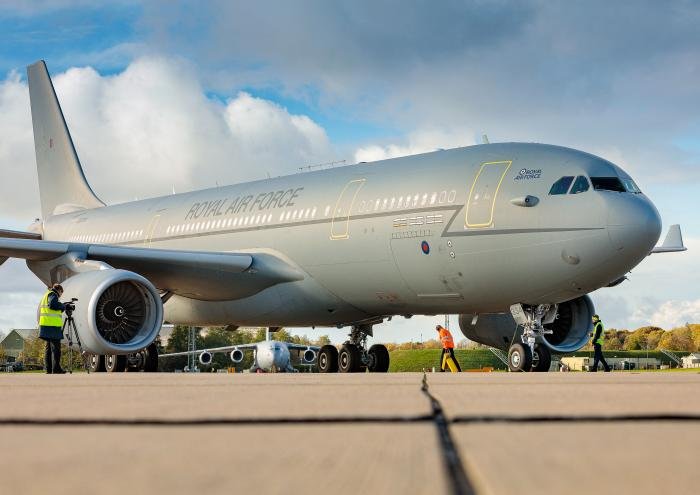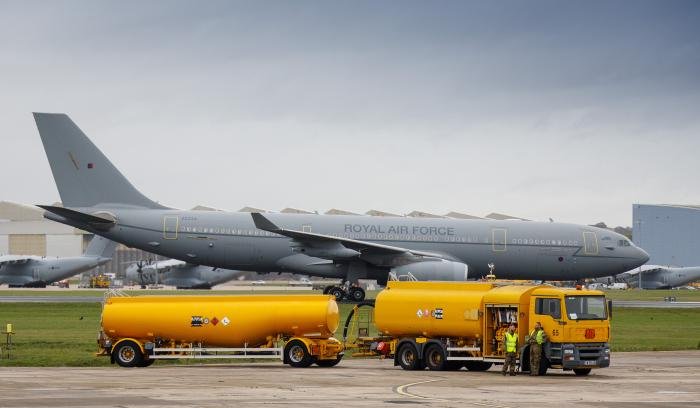A Worlds first occurred on Wednesday November 16, after a RAF Voyager transport aircraft performed a flight whilst powered by 100% sustainable aviation fuel (SAF), making the RAF one step closer to its Net Zero goal by 2040.
Taking place at RAF Brize Norton, Oxfordshire, home of the RAF’s Voyager fleet, the flight lasted 90 minutes and was a joint endeavor between the RAF, DE&S, Airbus, Air Tanker, and Rolls Royce. The test crew onboard were provided by the RAF, Rolls Royce and Airbus. The flight was a world’s first of using SAF to operate a large military transport aircraft.
The mission was to replicate an air-to-air refuelling mission, one of the main capabilities and missions of the Voyager aircraft within the UK’s defence. The flight was witnessed by the RAF Chief of the Air Staff, Air Chief Marshal Sir Mike Wigston. After the flight, he said: “Climate change is a transnational challenge that threatens our resilience, our security, and our collective prosperity. That is why I have set the RAF the ambitious challenge of becoming the world’s first net-zero Air Force by 2040. The way we power our aircraft will be key to meeting that challenge and the RAF is already thinking about how we will operate beyond fossil fuels.”

The SAF was provided by AirBP is created form waste-based feedstocks, such as, used cooking oil. This fuel reduces carbon emissions on average by up to 80% when compared to the jet fuel it replaces. Therefore, the RAF is less reliant on global supply chains and will improve operational resilience.
This successful flight is just one of many of the RAF’s attempts to reduce life cycle carbon emissions produced by the flying of its multiple aircraft types. In 2021 a microlight Ikarus C42 (G-KFCA) aircraft was flown by the RAF on full SAF in November 2021. This was the worlds first ever flight using 100% synthetic fuel and was a step towards the Voyager flight being able to take place just over a year later. Other innovations include the flying of a fully electric Pipistrel Velis Electro (G-OELC) aircraft at RAF Cranwell in Lincolnshire and finally, creating fuel from genetically modified bacteria.

As well as the attempt to become the worlds first Net Zero Air Force by 2040 which is working towards the UK Government’s Net Zero 2050 target and Jet Zero strategy, the RAF aims to have its first Net Zero airbase by 2025.

